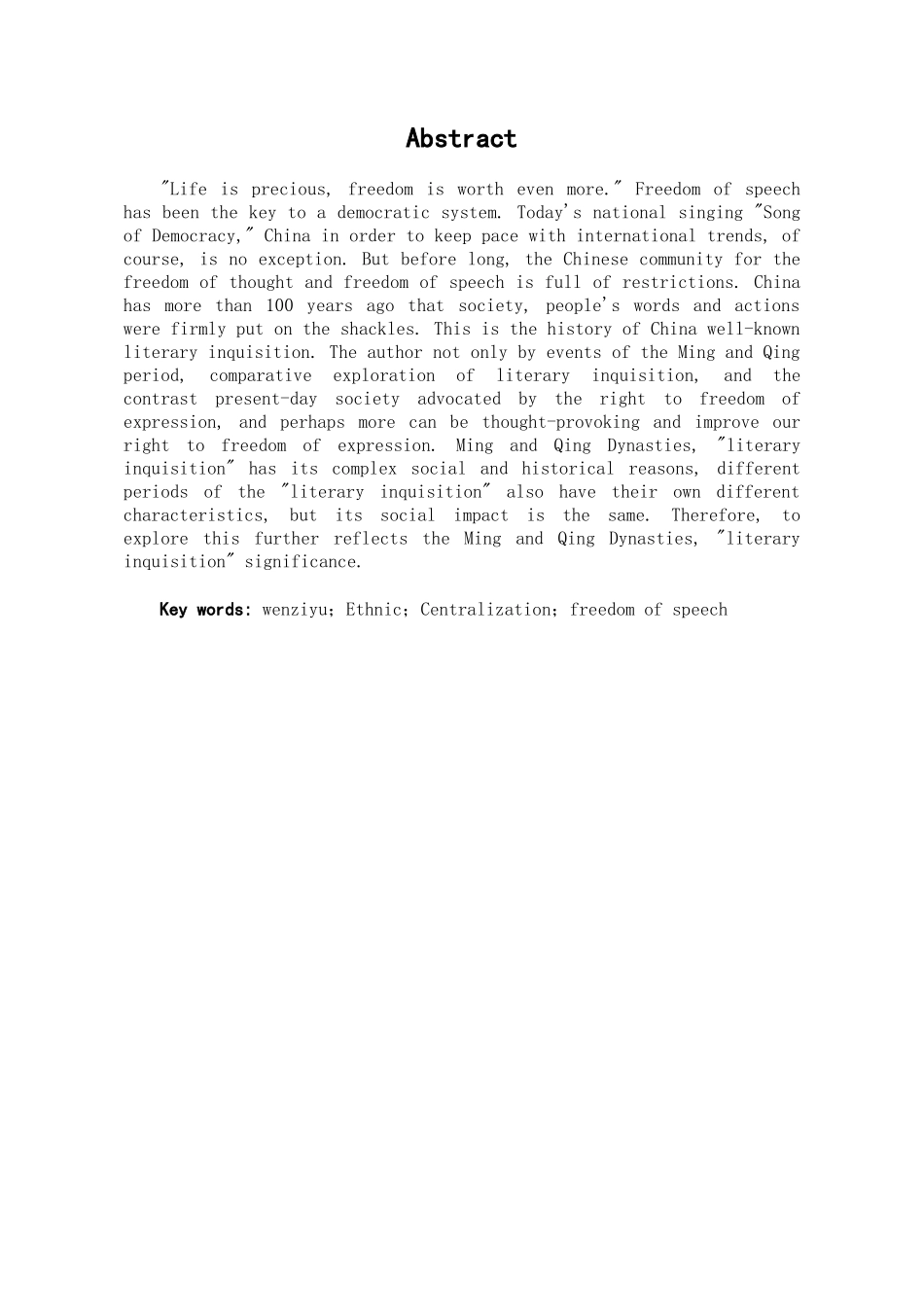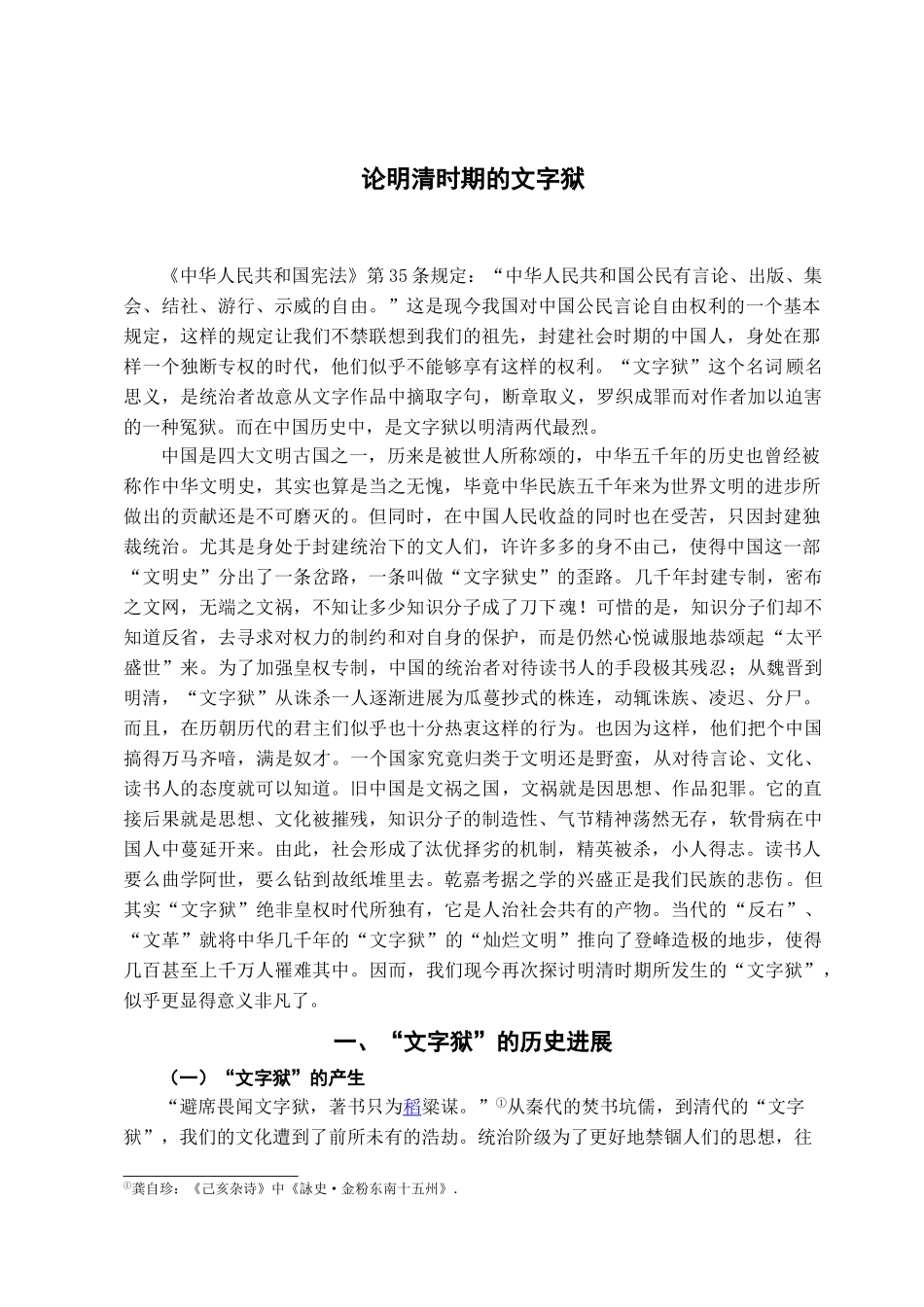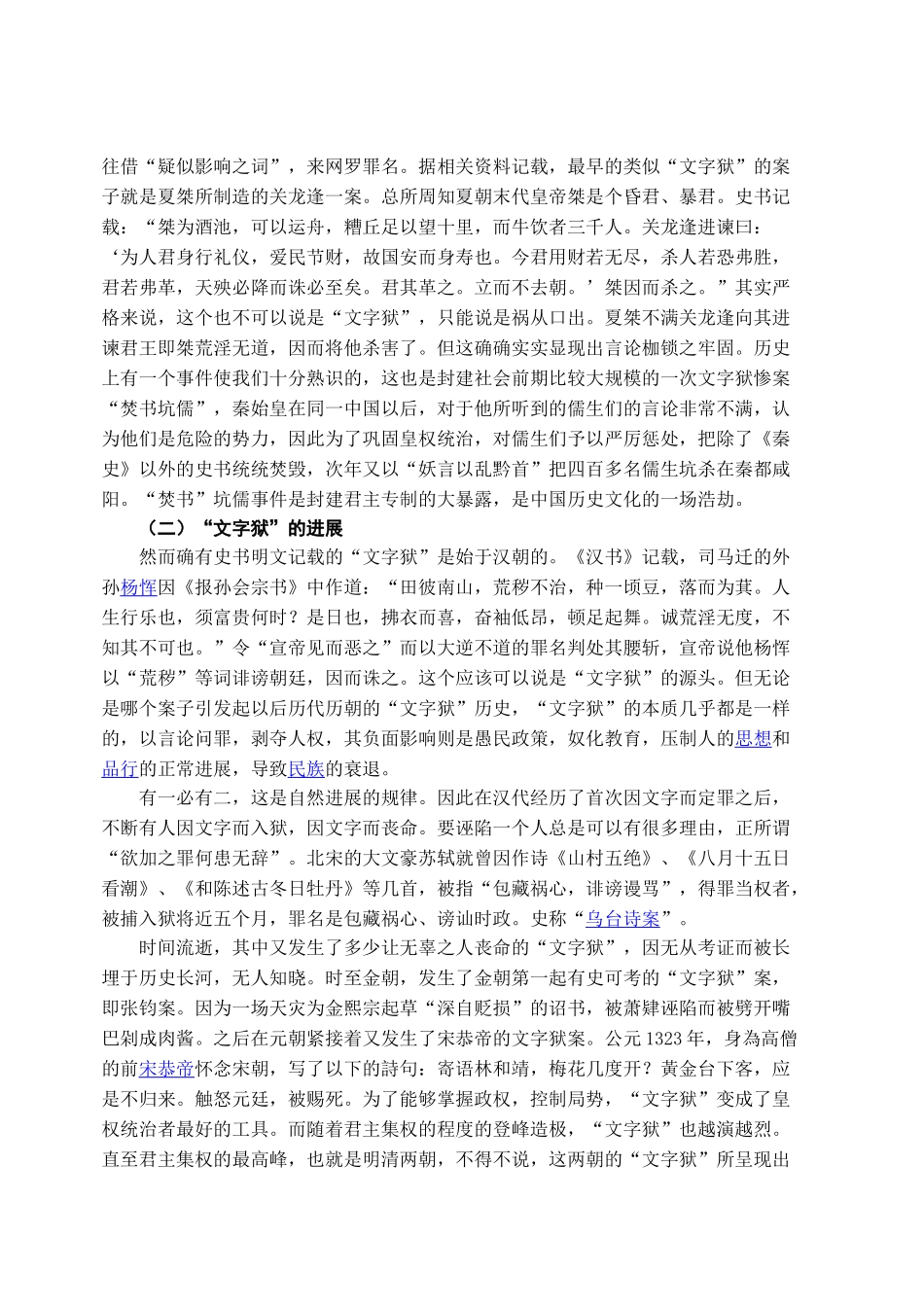Abstract"Life is precious, freedom is worth even more." Freedom of speech has been the key to a democratic system. Today's national singing "Song of Democracy," China in order to keep pace with international trends, of course, is no exception. But before long, the Chinese community for the freedom of thought and freedom of speech is full of restrictions. China has more than 100 years ago that society, people's words and actions were firmly put on the shackles. This is the history of China well-known literary inquisition. The author not only by events of the Ming and Qing period, comparative exploration of literary inquisition, and the contrast present-day society advocated by the right to freedom of expression, and perhaps more can be thought-provoking and improve our right to freedom of expression. Ming and Qing Dynasties, "literary inquisition" has its complex social and historical reasons, different periods of the "literary inquisition" also have their own different characteristics, but its social impact is the same. Therefore, to explore this further reflects the Ming and Qing Dynasties, "literary inquisition" significance.Key words: wenziyu;Ethnic;Centralization;freedom of speech 论明清时期的文字狱《中华人民共和国宪法》第 35 条规定:“中华人民共和国公民有言论、出版、集会、结社、游行、示威的自由。”这是现今我国对中国公民言论自由权利的一个基本规定,这样的规定让我们不禁联想到我们的祖先,封建社会时期的中国人,身处在那样一个独断专权的时代,他们似乎不能够享有这样的权利。“文字狱”这个名词顾名思义,是统治者故意从文字作品中摘取字句,断章取义,罗织成罪而对作者加以迫害的一种冤狱。而在中国历史中,是文字狱以明清两代最烈。中国是四大文明古国之一,历来是被世人所称颂的,中华五千年的历史也曾经被称作中华文明史,其实也算是当之无愧,毕竟中华民族五千年来为世界文明的进步所做出的贡献还是不可磨灭的。...


